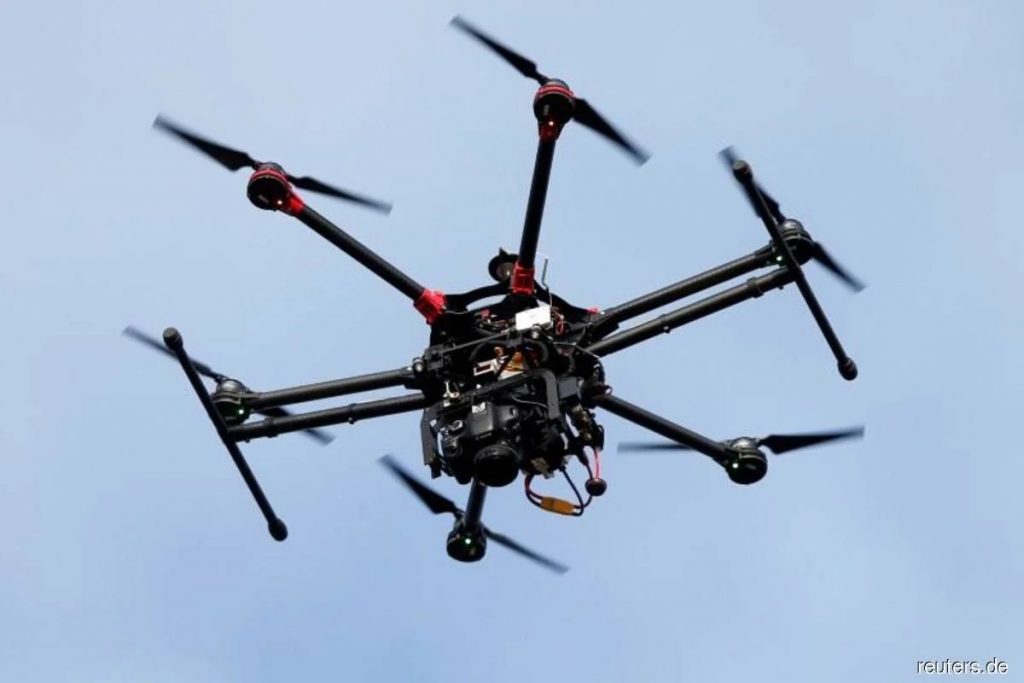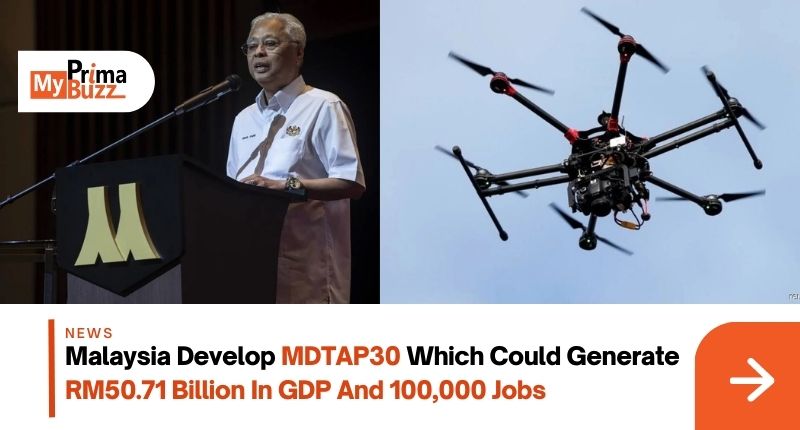The Malaysian Drone Technology Action Plan 2022-2030 (MDTAP30) will be developed as a national agenda to support the drone ecosystem as decided at the National Digital Economy and the Fourth Industrial Revolution Council (MED4IRN), said Prime Minister Datuk Seri Ismail Sabri Yaakob on Tuesday (Sept 6).
MDTAP30 - An Initiatives and Programmes on Drone Technology in Malaysia

Ismail Sabri explained that The Malaysian Research Accelerator for Technology and Innovation (MRANTI) will serve as the coordinating body and secretariat for MDTAP30, providing progress reports to Emerging Technology Clusters.
Ismail Sabri described the development of UAS-TM can improve the efficiency of the Drone Operator Registration Process and to increase UAS registration by 2030.
Ismail Sabri said Malaysia's drone industry could generate RM50.71 billion in gross domestic product (GDP) and could create 100,000 jobs opportunities by 2030.
Apart of that, the government said it would also strengthen its cooperation with Microsoft Malaysia on cybersecurity and online fraud to support Malaysia's digital development vision.

The Prime Minister said “Keluarga Malaysia” has a comprehensive program in place including awareness-raising forums, skills workshops and technical training for the public and private sectors. In addition, the conference will support the Sharing Economy Commission led by the Ministry of Communications and Multimedia to coordinate initiatives and programs related to the sharing economy at the national level involving the public, private, community and academic sectors.
MED4IRN also developed strategies related to the development of the Omnibus Act – Public Sector (Data Sharing) Act through the Public Sector Data Sharing Policy (DPDSA) and the National Data Sharing Policy (NDSP) to improve the country's data sharing ecosystem.
Ismail Sabri said small and medium-sized enterprises (SMEs) will continue to benefit from digitalisation and an integrated framework in which Online Dispute Resolution (ODR) mechanisms are put in place to adjudicate and resolve small claims and to manage cross-border e-commerce transactions.
He explained that the establishment of the one-stop center will make it easier for SMEs to access digitalization assistance programs and the status of gig economy workers is also constantly monitored to ensure that this group has adequate financial security and legal protection.
The Prime Minister also said that the 5G network coverage in densely populated areas has now reached more than 30%, with Digital Nasional Berhad (DNB) expected to reach 40% by the end of this year and 80% by 2024.
“The government hopes that the digitalisation programme that has been implemented by various ministries and agencies will continue to be improved, in an effort to maintain current momentum and further drive the nation's digitalisation agenda,” he said.

